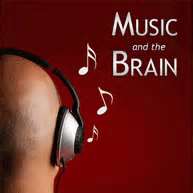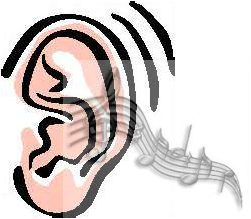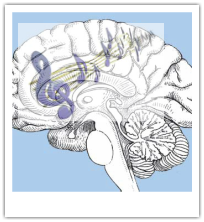Why Music Gets Stuck in Your Head
Stuck Songs in Your Head

When Our Mind Replays Those Songs Over and Over Again
You hear a song during the day and the next morning you wake up singing the tune.
At first it is not so bad, but then you can’t get that song out of your head. When a song gets stuck in someone’s head, many refer to it as stuck song syndrome, cognitive itch, or sticky music. Scientifically, this is known as Involuntary Musical Imagery, (INMI).
Commonly it is called earworms. We become powerless to dislodge these tunes in our head, and to stop it from constantly replaying.
Songs Stuck in Our Head
Have You Ever Had a Song Stuck in Your Head that was Hard to Get Rid of?
The Theories of Stuck Songs
Billboard Magazine, in 2003, did a survey and found that almost 98% of people experienced songs getting stuck in their heads.
Research is showing that mental replay of music is the dominant type of memory recalled involuntarily.
In a study using over 12,000 Finnish internet users, almost 92% of the participants reported experiencing songs getting stuck in their head at least one time a week. The survey showed:
-
Being female and increased music exposure seemed to make this phenomenon more likely.
-
As people age, the frequency of stuck songs seems to decrease
There are several theories about earworms. One hypothesis says that hearing these songs inside our head is a mild form of musical hallucination.
However this theory can easily be refuted because the cause of the involuntary tune is not due to the person being on drugs, suffering from schizophrenia, instead the person is completely aware that there is no music playing in reality.
Another theory says that the brain is trying to put together prior memories like we do during REM sleep.
Songs Stuck on Our Brain

Our Brain and Music
Scientists believe certain songs have the ability to create some kind of mental stimulus that makes the tune replay over and over in our head. It usually happens involuntarily, and has the potential to drive us crazy as the song plays over and over again in our head, almost like an endless loop.
It is believed that songs getting stuck in our head may be part of our involuntary memory, similar to wanting a particular food, after the idea of eating it has popped into our head. Music is encoded in our memory in many different ways, as a multi sensory stimulus, in addition to the emotional component. Anything that is encoded with personal connections to it,is recalled more easily in our memory.
Evolution may also play a part in how music gets lodged in our heads. Music preceded writing in ancient man by centuries because the ability to remember things is easier through song. Rhythm is natural to our body and mind, tunes.
Charles Darwin believed evolutionarily, that music came before speech, and may have played a part of courting mates. Music is important in every culture throughout the world and throughout time. We have a natural ability to respond to rhythm, which is not correlated to anything else.
None of this answers the question about why music gets stuck in our head, but it does show how integral music is to human nature, making music stuck in our head, a very natural phenonomen. What is interesting about songs that we can’t dislodge from our head is that they enter our minds without our permission, and don’t leave when we want them to. The songs take up residence in our brain, and it shows there is a part of our mind that is outside of our control.
Rhythm is natural to our body and mind, tunes reinforces the ability to remember the words.
Music has a profound effect emotions. Different parts of the brain process different aspects of music.
The Brain and Music

How the Brain Processes Music
Auditory parts of the brain deal with the music we hear. Pitch, tempo, melody, rhythm, are processed in other parts of the brain. Language does not use as many parts of the brain. When scientists look at the brain of musicians, they can plainly see that various areas of the brain, enlarge. Training and the sounds of music enlarge the corpus callosum (the area that sits between the right and left hemisphere of the brain, sections of the auditory cortex, parts of the frontal lobe of the cortex, and parts of the cerebellum. Science understands that the brain has the ability to hold onto musical patterns forever. Even people with Alzheimer’s Disease still can remember words to songs.
When we listen to music, it triggers the part of the brain where we process auditory information, called the auditory cortex. A familiar song activates the auditory cortex and automatically fills in the part of the song we didn’t hear. The repetition embeds itself in our minds and makes us replay the tune over and over again. The brain is attracted to pattern recognition. One theory says that the brain by replaying the song, is trying to close a gap in the rhythm, or lyrics, or melody.
One researcher named James Kellaris identified several aspects of music that make it memorable. Kellaris is a marketing professor at the University of Cincinnati. According to his research, “certain pieces of music may have properties that excite an abnormal reaction in the brain” and it attracts our attention. The songs that are most likely to get stuck in our head has three main characteristics:
- repetition of melody, beat, or words
- simple words or tune
- rhythm
When there is something catchy about the tune, it will likely get stuck in our head.
Even the mere mention of a tune can bring on the song that will get stuck.
This, researchers believe, shows that earworms are connected to our long term memory. Scientists have identified what they are calling “slave systems” within the short term memory of the brain, where we capture sights and sounds as we focus on them. One slave system exists in the inner ear and that is where the catchy tune gets stuck.
Even the mere mention of a tune can bring on the song that will get stuck in your head.
This, researchers believe, shows that earworms are connected to our long term memory. Scientists have identified what they are calling “slave systems” within the short term memory of the brain, where we capture sights and sounds as we focus on them. One slave system exists in the inner ear and that is where the catchy tune gets stuck.
Scientists are interested in earworms and gaining a greater understanding of the mind and stream of consciousness.
Music that Get Stuck in Our Head

Songs that Get Stuck in the Brain
In his 2003 study, Kellaris found almost 98% of the participants who got songs stuck in their head were usually songs that involved them singing along, as opposed to just instrumental music. Men and women seem to be afflicted with this about equally, but women had a harder time getting the tune out of their heads.
The study seemed to suggest that people who are musically inclined and those who are more anxious seem to be more susceptible to getting songs stuck in their head.
James Kellaris’ study showed that songs with lyrics get stuck 74% of the time.Followed most commonly by commercial jingles and then instrumental tunes with no words.
A Chicago parking garage executive named Myron Warshauer in the early 1980’s patented a “musical theme floor reminder system”. A different popular song would play on each floor. If you didn’t remember where you parked your car, just remember the song and you can tell where you parked your car by looking at the song titles listed next to the buttons for each floor.
Still with the research that has been done, there are still no definitive answers as to why songs get lodged in our brain, or how to get rid of the tunes.
Some people will sing another song to distract themselves, venting about the head distractions, or just waiting until the tune leaves on its own.
It is an annoying consequence for enjoying music. Researchers have found that music has the ability to stimulate the pleasure center in our brain similar to the effect that other pleasures bring such as eating chocolate or winning something.
The Annoyance of a Song Replaying in Our Head
Oliver Sacks in a British-American born, writer, biologist, and neurologist.who wrote a book called, Musicophilia, and has concentrated much of his study on what music does to the brain. Oliver Sacks, a neurologist, said earworms show clearly that our brains are sensitive and helpless to music. He explains that there is no spcecific musical spot in the brain. He believes there are anywhere from 20 to 30 neural networks that are running throughout the brain and these are able to discipher different part of music, analyzing pitch and melody and all the various parts of music.
A study at Dartmouth College used brain scans to see where the brain deals with music, when it is not really playing, but our mind can hear the beat. Th study found that the auditory cortex becomes active when music is actually heard, and when we imagine we hear the song. No one yet, understands why songs get stuck in our head. What they do know is that music is powerful in our minds. Musical tunes allow us to recall information easier Some people can have musical hallucinations, where someone imagines a song with real drums, real guitar, real volume.
Music that plays over and over again in our head, involuntarily can be annoying. They are usually sections of songs that our mind replays uncontrollably for anywhere from a short to extended period of time. Many television and radio advertisements commonly use catchy tunes, jingles, and short songs to intentionally get stuck in our heads. It is an intentional ploy, knowing that it will most likely help the advertiser be remembered.
While earworms are not dangerous, or representative of any emotional problem, their annoyance can interfere with our concentration and everyday thought processes.
Earworms Are Very Common
Musicians may be more susceptible to earworms because they listen to more music. Some research says that those trained in music leads to changes in the brain function and structure in the prefrontal cortex, which is located behind the forehead, is involved in the perception of melody. When the brain and body are both involved, the effect may be increased, and the entire body actually gets involved in the tune.
People who are more neurotic tend to have more earworms. One theory about this is that people with higher anxiety start worrying about how long the earworms last and they fret about the idea of it happening again, all making the stuck song syndrome that much worse.
Most earworms are very common and go away quickly, however intrusive they are.
That Annoying Song

Earworm Triggers
Data collected by BBC 6Music, a morning radio show, showed that there were certain triggers that caused songs to spontaneously get stuck in a musical memory loop:
- tunes that were heard recently
- hearing the song repeatedly
- or an unconscious or conscious reminder in the current environment
- stress
- being surprised
- dreaming
- a wandering mind
Nearly any song can turn into an earworm, but most often from research, it was found that any song could become stuck in our head. In a study done by Dr. Philip Beaman and Dr. Tim Williams, from the School of Psychology and Clinical Language Sciences, 100 people were polled about if they ever experienced this phenomenon, for how long and what type of tunes they heard inside their heads. Out of the 100 participants, there were very few songs they had in common with each other, even though some artists were listed multiple times by different people in the study. Justin Timberlake, Guns ‘n’ Roses, and Pink Floyd were among them.
The researchers were trying to understand how ideas and concepts get caught into a person’s head spontaneously, and how to rid our minds of the irritating repetition. Earworms appear to get stuck more often in people who find music to be more important to them, and they also found them to be more intrusive.
The study found that some people can get a song stuck in their head for anywhere from a couple of minutes to a few days, but the average was found to be about 27 minutes. It becomes a battle to rid ourselves of the tune, and the more you get rid of the earworm, the more persistent it becomes, making it harder to get rid of. The researchers found that the more you try not to think about the song, the faster it will go away.
Solutions to Getting that Song Out of Your Head
There are many suggestions as to how to get rid of those unwanted tunes in your head. Most suggest thinking of another song to push the old one out.
Some say the song should be a slow song. I have found singing “Frosty the Snowman” several times works, but not all the time.
Some say thinking of another song only makes the original earworm worse. Some have said occupying yourself by doing another activity such as a crossword puzzle or going for a run will displace the song.
Helping yourself to finish the song in its entirety will help tremendously for it to leave your head. Another theory is that the more we fight an earworm, the harder it is to get rid of. Whatever you do, getting that unwanted song out of your head, will most definitely be a relief.




